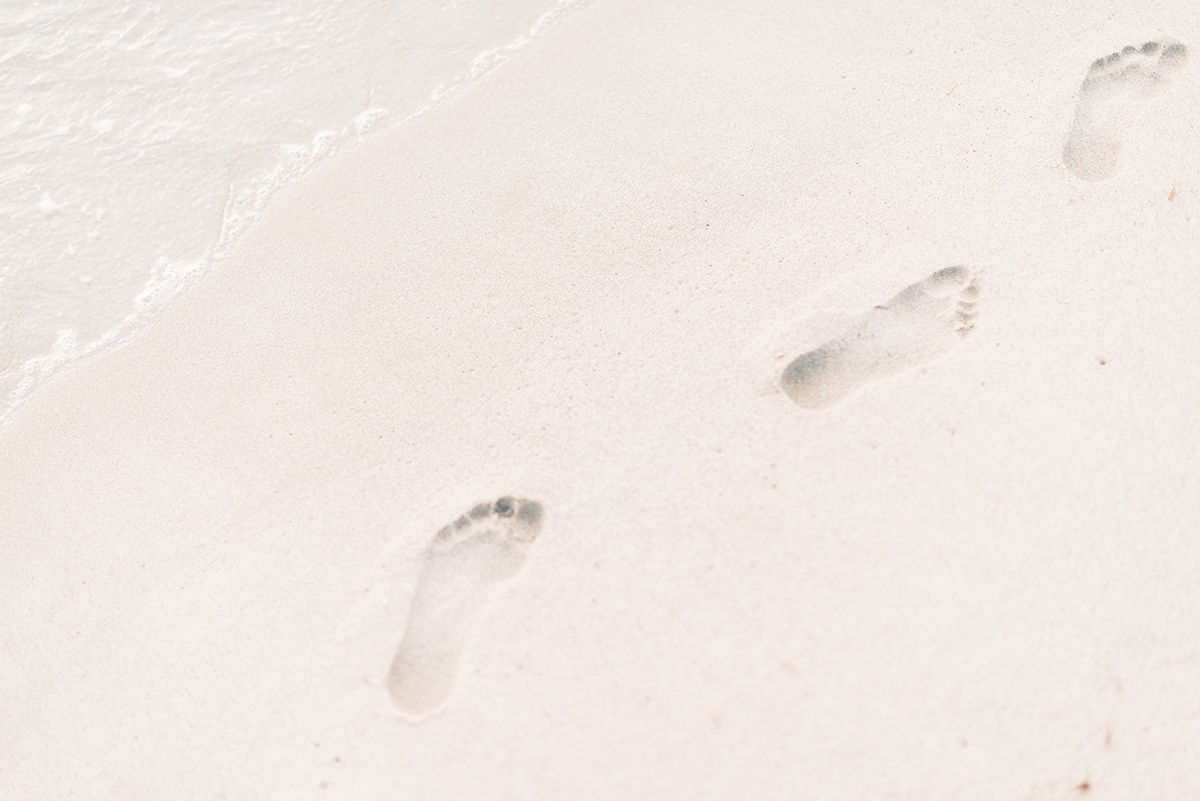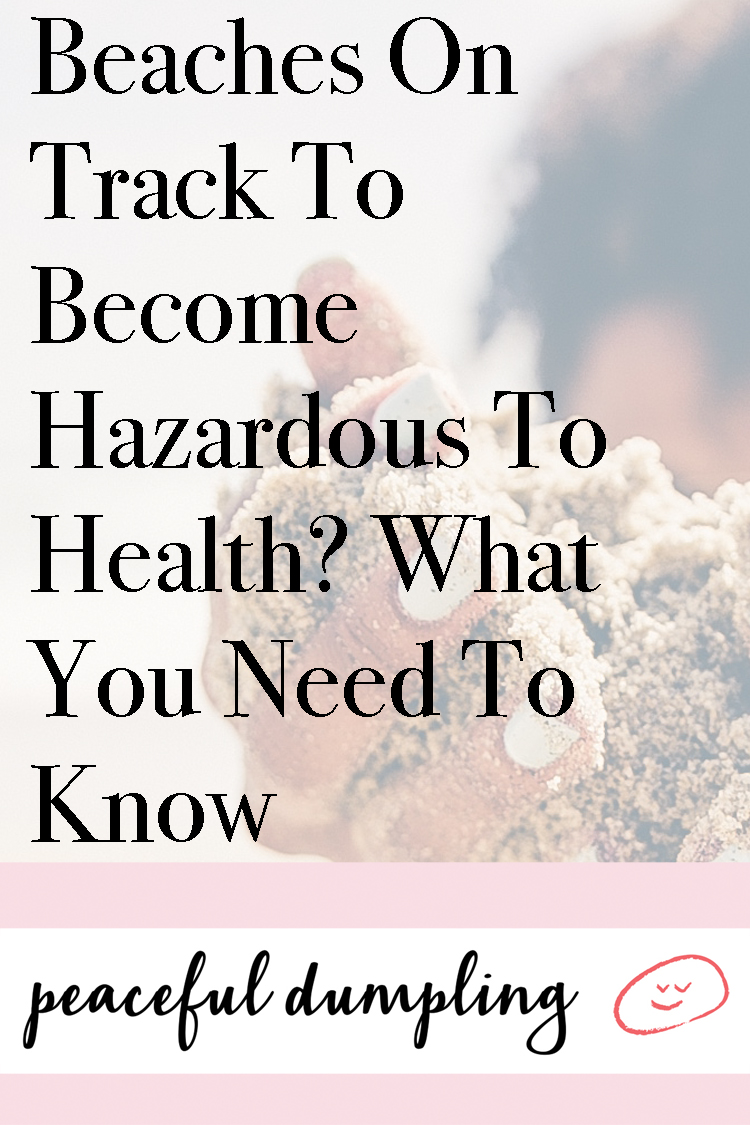Imagine a world where beaches have become danger zones; places no longer safe for us to spend our time. Sandy shores once crowded with surfers shredding against a sun-kissed horizon rendered barren. It’s scary, right? Because if you’re anything like me, you adore a paddle in the surf and sand between your toes.

But this isn’t any kind of natural danger I’m referring to here, such as that caused by rip tides or ocean predators. No, instead it’s the by-product of our lack of education and persistent exploitation of our planet’s resources. I’m talking, specifically, about ocean plastics and superbugs.
Unless you’ve been living under a rock, you’ll know that the current state of affairs is less than ideal for the environment. (That sentence could well win me the award for understatement of the year.) There’s damage being done from the ice caps to the tropics with nowhere left untouched. But I bet, like me, you still enjoy a vacation when there’s time and money in the bank to trade in for travel; simple pleasures like a trip to the beach, perhaps?
My point is, no matter how bad we know things are, we rest assured knowing that at least there’s still some beauty left. We eagerly await our escapes from the city. We still have the choice to take all those trips that we have scribbled on our bucket lists. And choice is an incredibly powerful and liberating thing. Choice is freedom. Choice keeps us sane.
But what happens when some of that choice gets taken away? When we’ve depleted some habitats so dramatically that immersing ourselves within them is no longer safe for our health? Unfortunately, that’s the reality in some parts of our underwater world and if nothing changes, we could well see days spent at the beach a thing of the past.

Our vast, dynamic oceans intertwine delicately around the continents and amass to roughly 70% of our planet’s surface area. That figure always blows my mind. But one of the downsides to having that much ocean all connected is that trash gets around fast. In fact, it’s found even in what you’d think would be the most unlikely of places. But it’s greater than that. The problem is more extensive. Plastics aren’t just getting into the waterways from that water bottle or coffee cup blown overboard on a cruise ship; they comprise everything we use in our daily lives. From clothing to consumables, plastic is ubiquitous, akin to oxygen but without the health benefits.
The most dangerous plastics are the microplastics because they are too small to see and too fine to be filtered. They bioaccumulate up the food chain and end up within us. That’s right. They’re in the water we drink, the food we eat and even the air that we breathe. And why’s that of concern? Because simply put: plastics don’t degrade. Toxins can adsorb to them (chemically bind to their surfaces) and enter our bloodstream where they can then travel to all of our organs where they can settle, leach out and disrupt our endocrine system or gain carcinogenic potential.
But it gets worse. A gulp of seawater doesn’t just contain plastic with the potential to harm, but also superbugs. “Superbug” is the trendy, headline-grabbing name assigned to bacteria which have built up antibiotic resistance. They are the reason why taking this type of medication doesn’t always work for us. See, antibiotics such as penicillin work by either interfering with the reproductive process of bacteria or by killing them outright (such as by disrupting a function of their cell wall). Only, bacteria are tough and their ability to reproduce as quickly as they do means that those that become resistant to antibiotics can pass on this gene to the next generation. Over time colonies strengthen and our antidotes to fight them off rendered useless.
We’ve brought the problem upon ourselves by using antibiotics far more frequently than is necessary, not to mention the intensive use in the animal agriculture industry which is well-known for its negative impact on our health. Things have to change. There’s also a strong line of thinking that our obsession with cleanliness and disinfectants has only worsened the situation by increasing the hardiness of many bacteria and decreasing our own tolerance, weakening our immune systems.

An interesting study was carried out here in the UK by the University of Exeter and environmental charity, Surfers Against Sewage. The aim of this aptly-named ‘Beach Bum Survey‘ was to swab surfers and lifeguards who were in the sea at least three times a month to determine whether their gut was composed of resistant strains of E.coli. Surfers – who swallow much more water than swimmers on average – were found to be three times more likely to have antibiotic-resistant strains of E.coli in their guts. Although most of these surfers were perfectly healthy, the study highlighted that should an infection develop in any of these individuals for whatever reason, standard antibiotics might not have much success. And you’ve got to wonder, with these mutated superorganisms only ever strengthening in population, what does this mean for the future of watersport enthusiasts?
We know how important the sea is for everything from our mental health to our skincare and diet, so it’s vital that we protect it as intensively as possible. It’s paramount that coastlines remain safe spaces for our tranquil indulgences and adrenaline-fuelled adventures because a planet without safe beaches is an unbearable sadness.
Before you ask, here are three easy ways to help the cause:
- Do what you can to reduce your plastic consumption
- Ditch the harsh disinfectants in favor of more natural alternatives
- If you consume animal products, be sure to make every effort to support organic and antibiotic-free

What could you do today to help our oceans and keep beaches safe spaces for all?
Also by Kat: Coral Reefs Are Dying—How You Can Help Save The Nurseries Of The Ocean
Related: This Belgian Effort To Recycle Ocean Plastic Is Overdue Morale Booster We All Need
Opinion: Why Being Vegan Helps the World’s Oceans
Get more like this—Subscribe to our daily inspirational newsletter for exclusive content!
—
